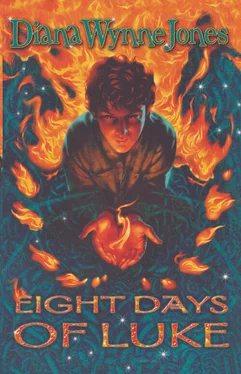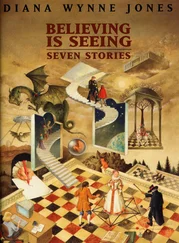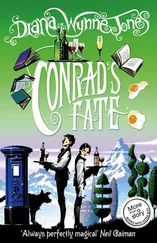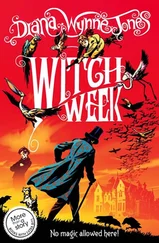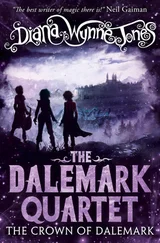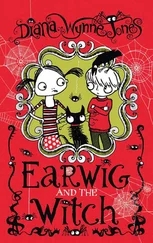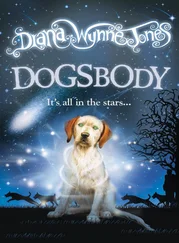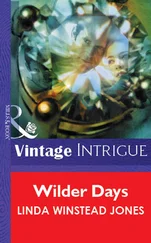
EIGHT DAYS OF LUKE
by
Diana Wynne Jones
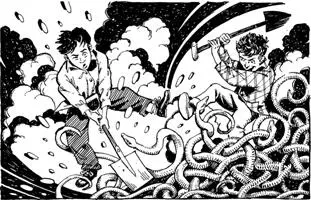
ILLUSTRATED BY DAVID WYATT

DEDICATION Dedication 1 The First Trouble 2 The Second Trouble 3 Luke 4 The Third Trouble 5 The Fire 6 Mr Chew 7 Flowers 8 Mr Wedding 9 The Raven 10 Thursday 11 The Frys 12 The Sisters 13 Wallsey 14 Thunderly Hill Other Works Copyright About the Publisher
For Colin
Cover
Title Page EIGHT DAYS OF LUKE by Diana Wynne Jones ILLUSTRATED BY DAVID WYATT
Dedication DEDICATION Dedication 1 The First Trouble 2 The Second Trouble 3 Luke 4 The Third Trouble 5 The Fire 6 Mr Chew 7 Flowers 8 Mr Wedding 9 The Raven 10 Thursday 11 The Frys 12 The Sisters 13 Wallsey 14 Thunderly Hill Other Works Copyright About the Publisher For Colin
1 The First Trouble
2 The Second Trouble
3 Luke
4 The Third Trouble
5 The Fire
6 Mr Chew
7 Flowers
8 Mr Wedding
9 The Raven
10 Thursday
11 The Frys
12 The Sisters
13 Wallsey
14 Thunderly Hill
Other Works
Copyright
About the Publisher
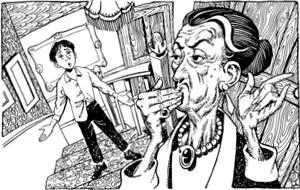
CHAPTER ONE The First Trouble
U nlike most boys, David dreaded the holidays. His parents were dead and he lived with his Great Aunt Dot, Great Uncle Bernard, their son Cousin Ronald and Cousin Ronald’s wife Astrid; and all these four people insisted that he should be grateful for the way they looked after him.
David tried to be grateful. They sent him to a boarding school which, as schools go, was not bad. Most holidays they arranged for him to go on an Educational Tour or to a Holiday Camp, and these were usually interesting enough to make up for David’s not knowing any of the other boys who went on them. He did feel grateful when Cousin Ronald pointed out that he had opportunities which few other boys were given. But when he was at home in Ashbury and not on a Tour or Camp, he found it much harder to be grateful. And the older he grew, the harder he found it.
This particular summer no Tour or Camp seemed to have been arranged. Aunt Dot usually sent David a postcard before the end of term to tell him what Tour he was going on, and this time no postcard had come. David’s heart sank a little on the way home, when he thought about it; but he was in a very cheerful mood and did not think about it much. He had taken five wickets for four runs in the match against Radley House, and had capped this by bowling his own games master middle stump, first ball, in the staff match. It was enough to make anyone cheerful. Cousin Ronald was interested in cricket. He could tell Cousin Ronald about it.
The railway work-to-rule meant that David had to wait two hours for a train in Birmingham, but he was so happy thinking just how he would tell Cousin Ronald about those wickets that he did not mind at all. He merely bought some bubble gum and sat cheerfully chewing as he thought.
When his train drew in among the red houses of Ashbury, however, his heart sank another notch or so, and by the time he had changed from the Wednesday Hill bus to the Lockend bus, he was feeling definitely depressed. But as he stood up to get off the bus, he remembered that the Clarksons lived at the corner of the road, and cheered up a little. The Clarksons were the only children near and they were both younger than David, but they liked cricket and they were not bad fun, considering. The only trouble was that Aunt Dot said they were vulgar. David could never see why. He thought, as he climbed off the bus, that it was a habit of Aunt Dot’s to call things vulgar – like Kent at school calling everything spastic – and it didn’t mean a thing.
As he turned the corner, David took a look over the Clarksons’ front gate. There was none of the usual clutter of bicycles lying about, and someone had weeded the front drive and planted a lot of useless flowers. That was ominous. David’s heart went down another notch. He walked on up the road and opened the gate to Uncle Bernard’s big red house, where there were never any weeds, or bicycles, and lines of geraniums were drawn up like guards on either side of the drive. David went up the steps and opened the front door and the smell of the house hit him. David had lately developed a theory that the sense of smell was much more important to the human race than anyone believed. The house smelt thick and dampish, of polish and old cabbage, the most dismal smell David knew. Like a proof of his theory, his heart went down about seven notches with a rush.
The hall was empty. This meant that, because of the railway work-to-rule, his trunk had not arrived yet. That was a nuisance. David’s cricket bat and the only pair of trousers that still fitted him had been in that trunk. It meant borrowing a bat and being stuck with short, tight school trousers until it arrived. He was rather sadly looking at the empty space in the hall where his trunk usually stood, when the door of the study opened. Cousin Ronald, balder and stouter and busier-looking than ever, came hurrying out, and with him came a gush of cricket commentary from the radio in the study.
David remembered his six triumphant wickets. “Oh, Cousin Ronald, do you know what?” he said happily.
Cousin Ronald seemed dumbfounded. He stopped in his tracks and stared at David. “What are you doing here?” he said.
“It’s holidays. We broke up yesterday,” David said. “But do you know what—?”
“Oh, this is too bad!” Cousin Ronald interrupted peevishly. “And I suppose they’ve sent you home early because of some blasted epidemic and we’ll all catch it now.”
“No. Honestly,” protested David. “It’s just the end of term.” He was beginning to lose all his joy in telling Cousin Ronald about those wickets; but it was too fine not to tell, so he tried again. “And do you know—?”
“It can’t be the end of term!” said Cousin Ronald. “Not already, boy.”
“Well, it is,” said David.
“What a confounded nuisance!” Cousin Ronald exclaimed, and plunged back into the study again and shut himself and the cricket commentary away inside it.
More than a little dashed, David went slowly away upstairs, trying not to feel miserable, trying to think about the cricket books in his bedroom. He came across Uncle Bernard on the first landing. Uncle Bernard did not seem to see David. He just tottered away to the bathroom looking frail and vague. David was heartily relieved. When Uncle Bernard noticed him, he always noticed the colour of David’s fingernails, the length of his hair and the fact that his tie was comfortably in his pocket. It was much better not to be noticed by Uncle Bernard. David turned thankfully to go up the second flight of stairs and found Aunt Dot’s tall figure coming down them.
“David!” exclaimed Aunt Dot. “Whatever are you doing here ?”
“It’s the holidays,” David explained once more. “We broke up yesterday.”
Читать дальше
